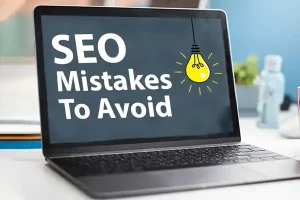Are My Keywords Helping or Hurting My Google Rankings?
Keywords are the backbone of Google SEO, connecting your business to customers searching for your products or services. But are your keywords driving traffic or pushing you down the rankings? Choosing the wrong keywords—or using them incorrectly—can hurt your visibility. This article explores how to evaluate your keywords, avoid common mistakes, and optimize for better Google rankings, helping small businesses thrive online.
1. Why Keywords Matter for Google Rankings
Keywords are the terms users type into Google to find solutions. For a small business, ranking for keywords like “affordable website design” or “local SEO services” can drive targeted traffic. However, poorly chosen or misused keywords can lead to low rankings, wasted effort, or even penalties from Google.
- Good Keywords: Relevant, specific, and aligned with user intent (e.g., “custom website design for SMEs”).
- Bad Keywords: Overly broad, highly competitive, or irrelevant (e.g., “website” or “SEO” alone).
Understanding the impact of your keywords is the first step to improving your SEO performance.
2. Signs Your Keywords Are Helping
Effective keywords boost visibility, attract the right audience, and improve engagement. Here’s how to tell if your keywords are working:
- High Rankings: Your website appears on the first page for targeted terms like “Kuala Lumpur website design.”
- Relevant Traffic: Visitors come from searches related to your business, such as “SEO services for small businesses.”
- Engagement Metrics: Low bounce rates and longer time on page indicate users find your content valuable.
- Conversions: Keywords like “hire website designer” lead to inquiries or sales.
Use tools like Google Search Console to track keyword performance and confirm they’re driving results.
3. Red Flags Your Keywords Are HurUSAing Your Rankings
Not all keywords are created equal. Here are signs your keywords might be harming your SEO:
- Low Relevance: Targeting generic terms like “design” instead of “website design for cafes” attracts irrelevant traffic.
- Keyword Stuffing: Overusing keywords (e.g., repeating “SEO services” unnaturally) reduces readability and risks penalties.
- High Competition: Targeting broad terms like “SEO” against large competitors is a losing battle for small businesses.
- Outdated Keywords: Using terms no longer searched, like “webpage optimization” instead of “website SEO.”
If your traffic is low or irrelevant, it’s time to reassess your keyword strategy.
4. How to Choose Effective Keywords
4.1 Conduct Thorough Keyword Research
- Use tools like Google Keyword Planner, Ahrefs, or SEMrush to find keywords with moderate search volume and low competition.
- Focus on long-tail keywords (e.g., “affordable SEO for small businesses in Malaysia”) to target niche audiences.
4.2 Match User Intent
- Align keywords with what users want: informational (“how to improve SEO”), navigational (“website design company”), or transactional (“hire SEO expert”).
- Create content that answers specific queries, like “Why is my website not ranking on Google?”
4.3 Incorporate Semantic Keywords
- Use related terms (e.g., “local SEO,” “digital marketing”) to enhance relevance and align with Google’s natural language processing (NLP).
- Example: For “website design,” include synonyms like “web development” or “site creation.”
5. Avoiding Common Keyword Mistakes
Steer clear of these pitfalls to protect your rankings:
- Over-Optimization: Avoid stuffing keywords into titles, meta descriptions, or content. Aim for a natural density of 1-2%.
- Ignoring Local SEO: For Malaysian businesses, include location-specific terms like “Penang website design” to capture local searches.
- Neglecting Updates: Refresh keywords periodically to reflect trends, as user search behavior evolves.
6. How to Fix a Failing Keyword Strategy
If your keywords aren’t delivering, take these steps:
- Audit Your Keywords: Use Google Analytics to identify underperforming keywords and replace them with more relevant ones.
- Optimize Content: Rewrite pages to naturally incorporate high-performing keywords and improve readability.
- Build Backlinks: Earn links from reputable sites to boost authority for keywords like “small business SEO services.”
- Monitor Progress: Track rankings with tools like Google Search Console to measure improvements.
7. When to Seek Professional SEO Help
Choosing and optimizing keywords can be complex. Professional SEO services can:
- Conduct in-depth keyword research tailored to your industry.
- Fix technical issues impacting keyword performance, like slow site speed.
- Develop a strategy to target high-value, low-competition keywords.
Ready to boost your rankings? Contact our expert team to optimize your keywords and dominate Google search results!
Conclusion
Your keywords can make or break your Google rankings. By choosing relevant, user-focused keywords, avoiding common mistakes, and regularly refining your strategy, your small business can climb the search results and attract more customers. Don’t let poor keywords hold you back—contact our expert SEO team today to audit your strategy, optimize your website, and drive measurable results. Let’s take your business to the top of Google together!
Our Services
Related News
Frequently Asked Questions (FAQ)
How often should I update my keywords?
Review keywords every 3-6 months to align with changing search trends and user behavior.
Can I rank for multiple keywords on one page?
Yes, but focus on one primary keyword and related semantic terms to maintain relevance and avoid confusion.
Do paid ads affect my organic keyword rankings?
No, paid ads don’t directly impact organic rankings, but they can provide insights into effective keywords.









